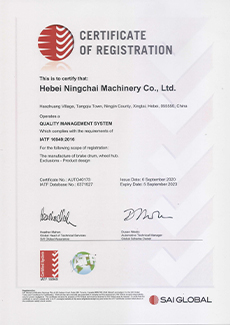
-
 Afrikaans
Afrikaans -
 Albanian
Albanian -
 Amharic
Amharic -
 Arabic
Arabic -
 Armenian
Armenian -
 Azerbaijani
Azerbaijani -
 Basque
Basque -
 Belarusian
Belarusian -
 Bengali
Bengali -
 Bosnian
Bosnian -
 Bulgarian
Bulgarian -
 Catalan
Catalan -
 Cebuano
Cebuano -
 Corsican
Corsican -
 Croatian
Croatian -
 Czech
Czech -
 Danish
Danish -
 Dutch
Dutch -
 English
English -
 Esperanto
Esperanto -
 Estonian
Estonian -
 Finnish
Finnish -
 French
French -
 Frisian
Frisian -
 Galician
Galician -
 Georgian
Georgian -
 German
German -
 Greek
Greek -
 Gujarati
Gujarati -
 Haitian Creole
Haitian Creole -
 hausa
hausa -
 hawaiian
hawaiian -
 Hebrew
Hebrew -
 Hindi
Hindi -
 Miao
Miao -
 Hungarian
Hungarian -
 Icelandic
Icelandic -
 igbo
igbo -
 Indonesian
Indonesian -
 irish
irish -
 Italian
Italian -
 Japanese
Japanese -
 Javanese
Javanese -
 Kannada
Kannada -
 kazakh
kazakh -
 Khmer
Khmer -
 Rwandese
Rwandese -
 Korean
Korean -
 Kurdish
Kurdish -
 Kyrgyz
Kyrgyz -
 Lao
Lao -
 Latin
Latin -
 Latvian
Latvian -
 Lithuanian
Lithuanian -
 Luxembourgish
Luxembourgish -
 Macedonian
Macedonian -
 Malgashi
Malgashi -
 Malay
Malay -
 Malayalam
Malayalam -
 Maltese
Maltese -
 Maori
Maori -
 Marathi
Marathi -
 Mongolian
Mongolian -
 Myanmar
Myanmar -
 Nepali
Nepali -
 Norwegian
Norwegian -
 Norwegian
Norwegian -
 Occitan
Occitan -
 Pashto
Pashto -
 Persian
Persian -
 Polish
Polish -
 Portuguese
Portuguese -
 Punjabi
Punjabi -
 Romanian
Romanian -
 Russian
Russian -
 Samoan
Samoan -
 Scottish Gaelic
Scottish Gaelic -
 Serbian
Serbian -
 Sesotho
Sesotho -
 Shona
Shona -
 Sindhi
Sindhi -
 Sinhala
Sinhala -
 Slovak
Slovak -
 Slovenian
Slovenian -
 Somali
Somali -
 Spanish
Spanish -
 Sundanese
Sundanese -
 Swahili
Swahili -
 Swedish
Swedish -
 Tagalog
Tagalog -
 Tajik
Tajik -
 Tamil
Tamil -
 Tatar
Tatar -
 Telugu
Telugu -
 Thai
Thai -
 Turkish
Turkish -
 Turkmen
Turkmen -
 Ukrainian
Ukrainian -
 Urdu
Urdu -
 Uighur
Uighur -
 Uzbek
Uzbek -
 Vietnamese
Vietnamese -
 Welsh
Welsh -
 Bantu
Bantu -
 Yiddish
Yiddish -
 Yoruba
Yoruba -
 Zulu
Zulu
Forging Technology for Truck Brake Drum Manufacturing and Performance Improvements
Understanding Truck Brake Drum Forging An Essential Component in Vehicle Safety
The truck brake drum plays a critical role in ensuring the safety and reliability of heavy-duty vehicles. As one of the primary components of a truck's braking system, the brake drum must withstand immense stresses and temperatures during operation. To guarantee optimal performance and durability, manufacturers often utilize forging as a preferred method for producing these essential parts.
The Importance of Brake Drums
Brake drums serve as the friction surface for the brake shoes in drum brake systems, which are commonly used in heavy trucks and trailers. When the driver applies the brakes, the brake shoes expand against the inner surface of the drum, creating friction that slows down the vehicle. Given the weight and size of trucks, which can carry significant loads, the brake drum must be robust and capable of dissipating heat efficiently to prevent brake fade, which can lead to catastrophic failures.
The Forging Process
Forging is a manufacturing process that involves shaping metal using localized compressive forces. This method is particularly beneficial for producing brake drums due to its ability to enhance the material's properties. The forging process typically includes heating metal and then shaping it through the application of powerful hammers or presses. This results in a structure that is denser and possesses improved mechanical qualities when compared to cast counterparts.
truck brake drum forge

The advantages of forged brake drums are manifold. Firstly, forged materials generally exhibit superior strength and toughness, which is crucial for handling the demanding conditions of industrial applications. Secondly, the forging process can reduce the risk of porosity—tiny holes or voids within the material that can weaken the drum. Because truck operations often involve repeated braking, any compromise in brake drum integrity could lead to significant safety hazards.
Trends and Innovations
As technology advances, the methods and materials used in forging continue to evolve. Manufacturers are increasingly turning to high-strength alloys and advanced forging techniques to produce lighter and more efficient brake drums. These innovations not only contribute to enhanced performance but also improve fuel efficiency by reducing the overall weight of the vehicle.
Moreover, the adoption of automated forging technologies allows for greater precision and consistency in the production of brake drums. This is essential in an era where regulatory standards for vehicle safety are more stringent than ever. Enhanced quality control measures are also being implemented to ensure that every brake drum meets the necessary safety specifications.
Conclusion
In summary, truck brake drum forging is a vital process that underpins the safety of heavy-duty vehicles. By utilizing forging techniques, manufacturers can produce brake drums that are not only stronger and more durable but also better equipped to withstand the rigorous demands placed upon them. As the trucking industry continues to innovate and evolve, the importance of these components will remain integral to ensuring safe transportation of goods across the nation. Thus, understanding and enhancing the forging process for brake drums is paramount in promoting vehicle reliability and safety on our roads.
-
What Are Drum BrakesNewsJul.07,2025
-
Understanding Brake Drum MaterialNewsJul.07,2025
-
Semi-Trailer Brake Drum: A Key Component for Extreme Loads and Long-Distance TransportNewsJul.07,2025
-
Drum Brake Pads for SaleNewsJul.07,2025
-
Brake Drums for SaleNewsJul.07,2025
-
Brake Drum ManufacturerNewsJul.07,2025
-
Aluminum Brake Drums: The Future of High-Performance CarsNewsJul.07,2025
